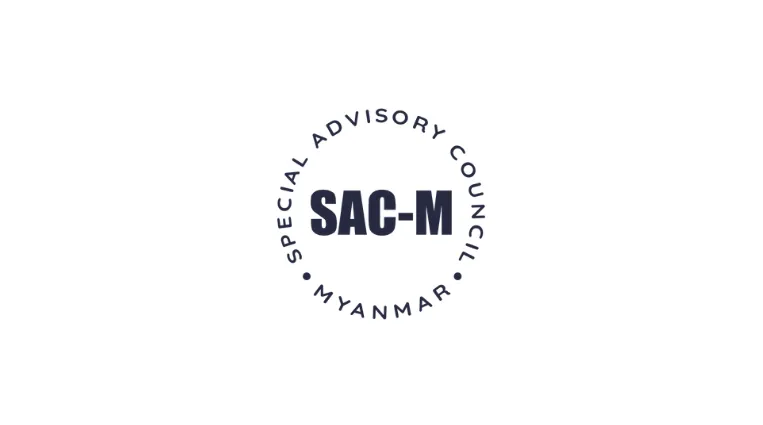International Cross-Border Response to Typhoon Yagi Urgently Needed
17 September 2024
Special Advisory Council for Myanmar

States neighbouring Myanmar must drop the politics and open their borders to allow international humanitarian aid to reach the Myanmar people through resistance authority and civil society networks, says the Special Advisory Council for Myanmar (SAC-M).
Typhoon Yagi hit northern Myanmar on 10 September causing severe flooding, landslides and widespread destruction across the country. Low-lying townships surrounding Naypyitaw and Mandalay have been inundated, while areas of Bago, and Magwe regions, as well as eastern and southern Shan, Karen, Karenni and Mon states have also been impacted. At least 113 people are known to have been killed and 325,000 people internally displaced by the storm, Myanmar military junta-controlled media reported on Sunday. The actual figures are likely to be far higher.
Myanmar was already facing a catastrophic humanitarian crisis, devastated by almost four years of revolutionary war against the military junta.
During this time, the military has increasingly relied on heavy aerial and artillery bombardment of populated areas, causing massive loss of civilian life and destruction of homes and infrastructure. An estimated 3 million people are internally displaced across the country, many living without basic food, shelter and sanitation. The military has consistently prevented humanitarian assistance from reaching those in need.
The full extent of the damage caused by typhoon Yagi in such circumstances is difficult to ascertain, but it is certain to have significantly exacerbated the crisis. An international humanitarian response to Yagi is urgently needed.
It is essential that international humanitarian actors engage with Myanmar resistance authorities and civil society to support their relief efforts. Resistance actors have greater control in more of the country than the military and, along with civil society, have experience in administering humanitarian assistance to people in their areas and beyond.
The Myanmar military junta is not the legitimate or de facto government of Myanmar, nor does it have the will or capacity to ensure aid is delivered to the majority of those in dire need. The military created Myanmar’s pre-existing humanitarian crisis and will seek to use engagement with international actors on humanitarian grounds to advance its own military and political agenda at the expense of the Myanmar people. It has done this for decades, most recently in response to Cyclone Mocha in 2023.
Donors must be especially careful to ensure aid is provided in a way that reaches the people most in need and is not instrumentalised by the military junta. The military junta’s lack of de facto and de jure legitimacy means international actors are not legally bound by the arbitrary restrictions it has sought, and will continue to seek, to impose on humanitarian access to and around Myanmar.
The onus now is on Myanmar’s neighbouring States – China, India, Thailand, Laos and Bangladesh – to open their borders and allow international aid to cross into Myanmar and be distributed to people in need in coordination with Myanmar resistance authorities and civil society.
Myanmar’s neighbours and the wider international community must act in solidarity with the people of Myanmar and not allow Min Aung Hlaing to exploit this latest disaster to further deepen Myanmar’s suffering.
Announcements
04 April 2025
Myanmar: Human Rights Council condemns the junta, responds to the earthquake, and calls to end sale and supply of arms and jet fuel
13 March 2025
Job Vacancy: Administrative and Finance Assistant
28 February 2025
Open letter: Removal of the membership of the dis-accredited Myanmar National Human Rights Commission from the Southeast Asia National Human Rights Institution Forum
25 February 2025
သတင်းထုတ်ပြန်ကြေညာချက် – တရားမျှတမှုဆီရှေးရှုလျက် အာဂျင်တီးနားတရားရုံး၏ ဖမ်းဝရမ်းထုတ်ပြန်မှုကို ကြိုဆိုထောက်ခံ
25 February 2025
Press Statement: Argentine Court’s arrest warrants are welcome progress towards justice

Progressive Voice is a participatory rights-based policy research and advocacy organization rooted in civil society, that maintains strong networks and relationships with grassroots organizations and community-based organizations throughout Myanmar. It acts as a bridge to the international community and international policymakers by amplifying voices from the ground, and advocating for a rights-based policy narrative.